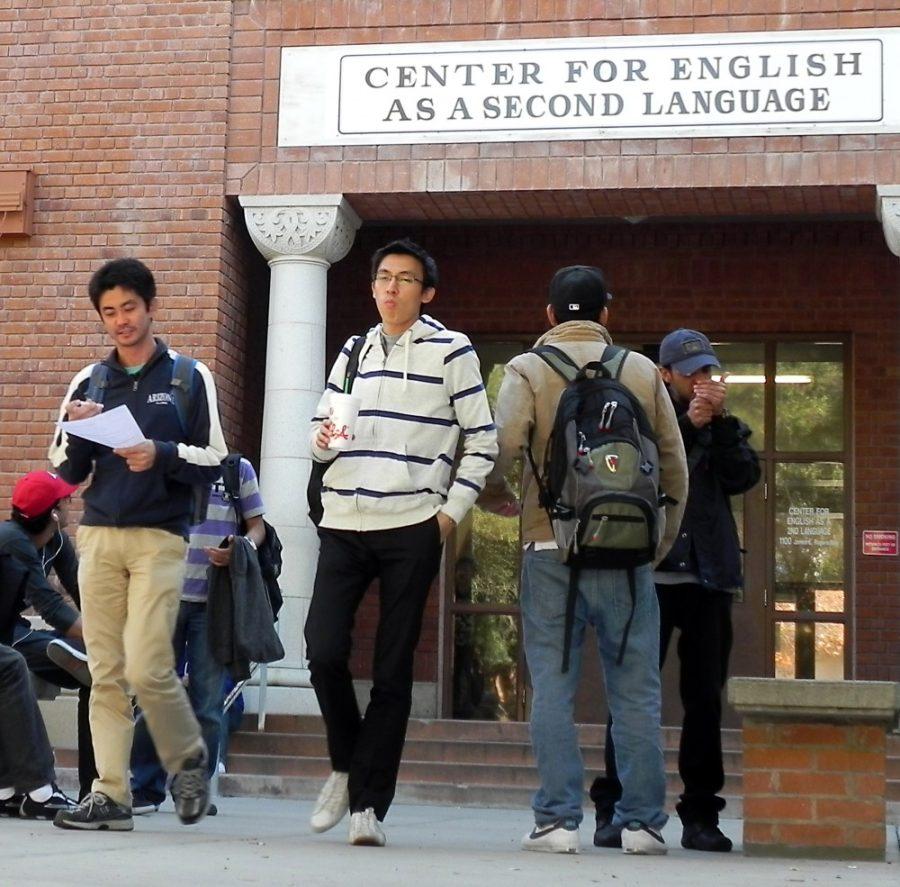Each year, the UA hosts international students from more than 100 countries, each with their own cultures, skills and struggles.
International students grapple with a wide range of challenges, from cultural differences to academic expectations to language. Although learning English may seem like the largest problem, international students must also confront less obvious challenges. International students face an “inverted list” of problems, according to Zachary Brooks, an English language instructor at the Center for English as a Second Language.
“You would think it’s all language, right at the top of the list, but really language might be at the bottom,” Brooks said. “So it’s like cultural would maybe be at the top, and just the newness, newness of being in a new place, homesickness, different expectations and then not understanding sort of the culture of a particular educational institution.”
The Center for English as a Second Language provides several programs to help foreign students prepare to enter the university and succeed once they’re fully enrolled.
“It is sort of a soft landing and a good transition,” Brooks said.
International students can enroll in a full-time or a part-time program that is designed to improve their English and familiarize them with American culture. The CESL also provides evening classes, online classes, tutoring and workshops.
A typical full-time CESL student takes four language classes, according to Sumayya Granger, the local program development officer at the center.
While increasing language proficiency in reading, writing, listening, speaking and grammar, CESL classes also prepare students to succeed in the UA’s academic culture. Students are assigned projects, presentations and essays that acquaint them with the university’s expectations and academic procedures. The center also helps students cultivate productive study habits.
“Even if their English is quite good, they also need to make sure that they understand what is expected of them in a university class,” Granger said.
Taehyun Kim left his home in South Korea two months ago to conduct post-doctoral research in the UA School of Geography and Development. One of the first problems he encountered was identification.
“When I first came to Tucson I have no Social Security number and in U of A, I haven’t got a CatCard yet, so whenever I went to the office of health or etcetera, I need photo ID so I have to prove my identity by other things,” Kim said.
The experience, Kim said, made him feel alienated. After three weeks of living in Tucson, Kim obtained a CatCard and a driver’s license.
Kim said he also struggled with cultural differences, particularly American greetings. Kim said strangers commonly say hello and ask him how he is doing, which catches him off guard because such familiar greetings are not part of South Korean culture.
“We never say hello with unknown people when it’s the first time,” Kim said. “Now I’m adjusted, so I think it is good thing because it makes me feel a little bit close to Americans.”
For Li Qiao, a pre-business sophomore from China, one of the most problematic cultural differences has been food.
“The first year, I didn’t eat so much because I didn’t get used to it,” Qiao said.
During the school week, Qiao said he ate at the Student Union Memorial Center where he was overwhelmed by different foods like hamburgers and pizza. To ease the transition, he cooked food for himself on the weekends.
“I combined the American food with Chinese food in my daily life,” Qiao said.
Despite the difficulties of entering an American university, many foreign students feel the experience is valuable. Studying abroad not only improves language proficiency, but fosters cross-cultural understanding, Kim said.
“In my country, every media, news media, is for Koreans, so when (there is) a political or cultural issue between Korea and America it focused on the aspect of Koreans, but after I move here, it can be different aspect and I can know, understand more about the culture of America,” Kim said.









